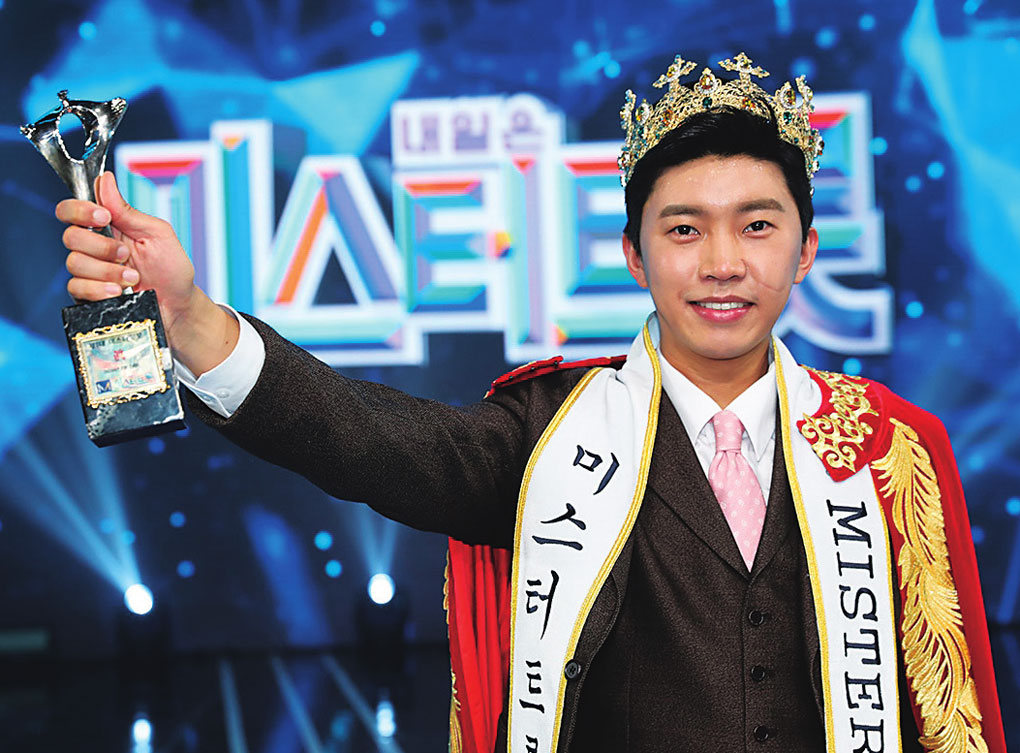Korea’s popular music landscape in the 21st century has become ever more diversified via legacy media, represented by TV channels, and new media of the mobile era, such as social networking and streaming platforms.

An overflow audience reacts enthusiastically at a trot music concert at the Suwon Convention Center in 2019. © Kyeonggi Ilbo
Diversity characterizes the popular music of Korea today. Identifying the predominant genre is a frustrating exercise in this age of new media. The main avenue for music lovers nowadays is online streaming, with traditional music charts that track record and album sales considered less accurate in determining top performers. But real-time online streaming charts don’t have much credibility either; their results are skewed by massive K-pop fanbases streaming their idols’ songs on a 24/7 basis to boost their chart rankings. To musicians without such a fandom, the music charts are nothing more than “a playground for idols.”
Nonetheless, some singers outside the K-pop community are clearly demonstrating that TV exposure and legions of organized fans are not essential as long as an artist has true talent. The history of how Korean popular music arrived at this point harks back to the fickle fame of TV talent shows. As the shows rose, faded and then reappeared, new entertainment agencies spawned K-pop, and waves of new media and communication networks reshaped paths to popularity.

Trot sensation Song Ga-in speaks at a press conference in 2019. Song is the winner of the hit audition program “Miss Trot,” which aired on TV Chosun in 2019. © News1

Lim Young-woong rejoices over his victory in the followup male version, “Mr. Trot,” which aired on TV Chosun from January to March 2020. The show’s final episode scored the highest viewership rating of all TV variety shows in Korea. © Starnews
From TV to Agencies
MBC network’s Campus Music Festival kicked off TV talent competitions in Korea in 1977. It helped reinvigorate youth culture, which was set back by a government crackdown on marijuana-smoking entertainers in 1975. The first grand prize went to the band Sand Pebbles for their song “What Should I Do.” Through the ensuing years, the grand prize in this contest brought instant fame to its winners.
By the mid-1990s, the contest had begun to lose steam. Entertainment agencies appeared on the scene, leading to dramatic changes in the popular music market. Aspiring stars as young as early teens knocked on the doors of talent agencies. Those who were accepted often went through years of rigorous training before they could debut as part of an “idol” group. This was the gestation period of K-pop, just as home internet hook-ups and website creations were increasing exponentially. On the other end of the spectrum, aspiring young musicians who wished to pursue a distinctive musical style headed to the live clubs in the Hongdae district.
The proliferation of the internet brought seismic shifts to the music market. MP3 file downloads replaced CD albums as the prevalent form of music consumption. However, most people sought out unauthorized peer-to-peer (P2P) file-sharing platforms to download songs for free, which they would use as background music for their social media profiles or cell phone ringtones.
Diminishing physical album sales coupled with an absence of legal means to download music online suppressed the music market. The trend began to turn with the widespread use of smartphones in the 2010s and the ensuing shift to a mobile environment. Downloading gave way to streaming music, which grew to a scale large enough to give rise to a digital music market.
Underdog Chart Toppers
By the mid-2010s, streaming had taken firm root as the prevailing source for music consumers. But certain artists, despite not being K-pop idols or getting television exposure, invariably see their new releases rank high on the streaming charts. They sing mostly ballads or acoustic songs that accentuate their voices. Rather than relying heavily on “visuals” (referring to physical appearance), an essential feature of K-pop, underdog chart toppers place emphasis on their “sweet to the ear” vocals. They are a new breed of musicians taking up the legacy of the “radio stars” of the past.
Heize debuted in 2015 and gradually gained name recognition, topping the streaming charts with her hits like “Don’t Come Back” and “Star.” Bolbbalgan4, a female duo, didn’t receive much attention early in their career, but rose to stardom when their song “Galaxy” climbed the streaming charts to number one.
A decisive determinant in the chart success of these artists has been word of mouth on social media. Although people say that the age of radio is over, demand still exists. It’s just that the platform has changed. These chart-topping vocal performers are a living testimony.
Downloading gave way to streaming music, which grew to a scale large enough to give rise to a digital music market.
By the mid-2010s, streaming had taken firm root as the prevailing source for music consumers.

Spectators cheer at a preliminary round of Mnet’s “Superstar K” season 3, held in New York City in 2011. The TV audition program generated remarkable interest abroad as it was open to international contestants. © Ukopia
Talent Shows Return
Talent competitions made a comeback in 2009 with “Superstar K,” which aired on Mnet. Unlike the college song contests, wannabes of all ages could enter, and the competition took place both on and off stage. The show spotlighted not only talent but personal stories, often tear-jerkers, which helped elicit support from home viewers who could vote for their favorites alongside a panel of professional judges. The winner of season one, singer Seo In-guk, transitioned into acting as well. Following winners were similarly catapulted to stardom.
The huge success of “Superstar K” led to a spate of singing competitions, such as “K-Pop Star,” which aired on SBS for six seasons beginning in 2011, and Mnet’s “Show Me the Money,” which aired its eighth season in 2019. The standout was Mnet’s “Produce 101,” which began its first season in 2016 to runaway success. Contestants inevitably developed fanbases that hoisted banners and placards and cheered loudly during their performances. Fan groups also battled passionately in online communities, raving about the charm and talent of their favorites in hopes of earning votes from viewers.
The intimate link between fans, musicians and television stations has turned music into an arena of competition that bears resemblance to sports. Musicians without the strong backing of a major management agency compete against one another like gladiators in a coliseum; the public are spectators watching them fight to survive, cheering wildly. This is one aspect of the current popular music scene in Korea.
Until recently, teuroteu, or trot music, was given the cold shoulder and largely neglected by the public. Its streaming market share was only two percent in 2019, and few music stores sold trot stock. The genre’s main revenue source was album sales at highway rest stops and performances at small local events or festivals. Nevertheless, trot music has seen a remarkable resurgence, thanks in part to internet exposure.
Trot Renaissance
The harbinger of the current trot boom was comedian Yoo Jae-suk, perhaps the most loved and sought-after TV personality in Korea. In 2019, he debuted as a trot singer under the stage name Yoo San-seul on MBC’s variety show “Hangout with Yoo.” The show followed his transformation into a rookie trot singer whose songs became surprise hits, ranking high on the streaming charts. As Yoo San-seul, he even won the Rookie Award in the variety category at the 2019 MBC Entertainment Awards. He proved that trot had the potential to become a “blue chip” musical genre in the entertainment industry.
The audition program “Miss Trot,” which aired on TV Chosun in 2019, added to the boom ignited by Yoo, and winner Song Ga-in rocketed to stardom overnight. An unknown singer who had struggled for many years, Song bucked the prevailing trend of fusion trot and won the hearts of the audience with her authentic style. She amassed an enormous fanbase, mostly middle-aged and older viewers just as loyal and passionate as the young fans of idol groups.
TV Chosun went on to roll out a male version of the show. It aired from January to March of this year, producing another breakout star, Lim Young-woong. Unlike “Miss Trot,” which featured cookie-cutter contestants in its early episodes and failed to garner much attention, “Mr. Trot” hooked the audience from the beginning. Distinctive contestants brought a contemporary touch to their performances, showing off amazing dancing skills. The final episode scored a viewership rating of over 35 percent, an all-time national high for a TV variety show. This was possible because it succeeded in captivating young viewers as well as older generations.
Winners of both shows chose to depart from the trend toward fusion trot. They faithfully rendered the classic style of the 1960s and 1970s, the heyday of trot music that produced legendary stars like Lee Mi-ja and Na Hoon-a, and moved viewers deeply with “old-fashioned” vocal techniques that had long been pushed aside.
Trot’s resurging popularity across all generations can also be attributed to its young stars appealing to their contemporaries. Thanks to YouTube, classic oldies have found a new following among the digital generation. YouTube and its content curation have bridged the temporal gap between content and consumer; city pop, a genre of popular music from the 1980s, is enjoying similarly renewed popularity, and ‘90s dance hits have also made a major comeback online. To the YouTube generation, old no longer means tacky.

MBC Campus Music Festival, which began in 1977, initiated TV talent competitions in Korea. In the 2000s, TV talent shows evolved to feature a wide array of musical styles, including hip hop, trot and crossover. Shown clockwise from top left are the posters for “Phantom Singer” (JTBC), “K-Pop Star” (SBS), “The Voice of Korea” and “High School Rapper” (both Mnet), and “TOP Band” (KBS).
Kim Zak-kaMusic Critic; Selection Committee Member, Korean Music Awards